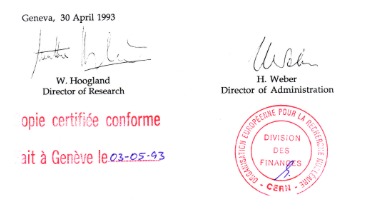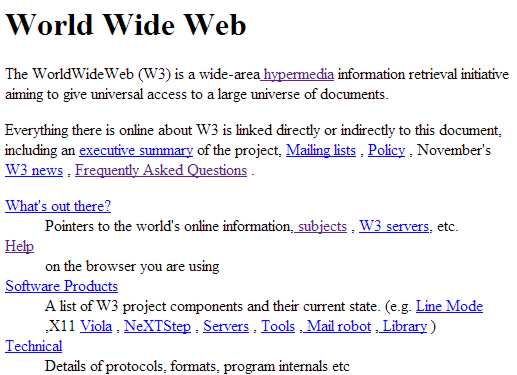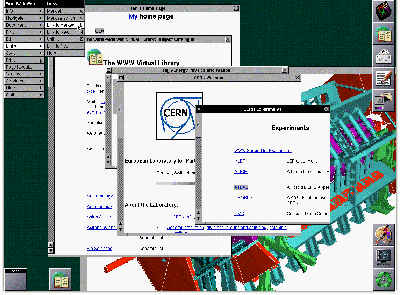| CERN Celebrates 20 Years of World Wide Web |
| Written by Historian | |||
| Tuesday, 30 April 2013 | |||
|
Can you imagine not having the web at your fingertips? Or it being so expensive that only big corporations and elite universities could afford it? An undertaking made 20 years ago led to the World Wide Web being freely available to all. The technology that we now know as the World Wide Web or W3 had been invented in 1989 by British physicist Tim Berners-Lee to meet the demand for information sharing between physicists in universities and institutes around the world. On April 30, 1993 two officials at CERN, Director of Research W. Hoogland and Director of Administration, signed a statement in which they put that technology into the public domain on a royalty-free basis. The components they made available for anyone to use, duplicate, modify and redistribute were:
According to the statement: CERN's intention in this is to further compatibility, common practices, and standards in networking and computer supported collaboration. As a result the World Wide Web has evolved to be the resource we have come to take for granted.
To celebrate the 20th anniversary of this historic undertaking , a team at CERN set out to restore the world's first website and to preserve some of the digital assets associated with the birth of the web. You can now browse the world's first website, which was originally hosted on Berners'Lee's NeXT computer and was about the World Wide Web itself. It is well worth clicking around the replica of this primitive site to realize just how far we've come in 20 years.
According to Dan Noyes on the project's blog, this first website "was probably quite lonely" as few people had access either to browser or web servers. One of the people who has a browser was Tim Berners-Lee and this screenshot is of the original NeXT web browser in 1993: (click to open in high resolution)
The restoration project team aims to make http://info.cern.ch - the first web address - a destination that reflects the story of the beginnings of the web for the benefit of future generations and is looking for volunteers to help.
More InformationRelated ArticlesQueen Elizabeth Prize For Engineering Recognizes Internet and Web World Wide Web Foundation Index
To be informed about new articles on I Programmer, install the I Programmer Toolbar, subscribe to the RSS feed, follow us on, Twitter, Facebook, Google+ or Linkedin, or sign up for our weekly newsletter.
Comments
or email your comment to: comments@i-programmer.info
|
|||
| Last Updated ( Tuesday, 30 April 2013 ) |






